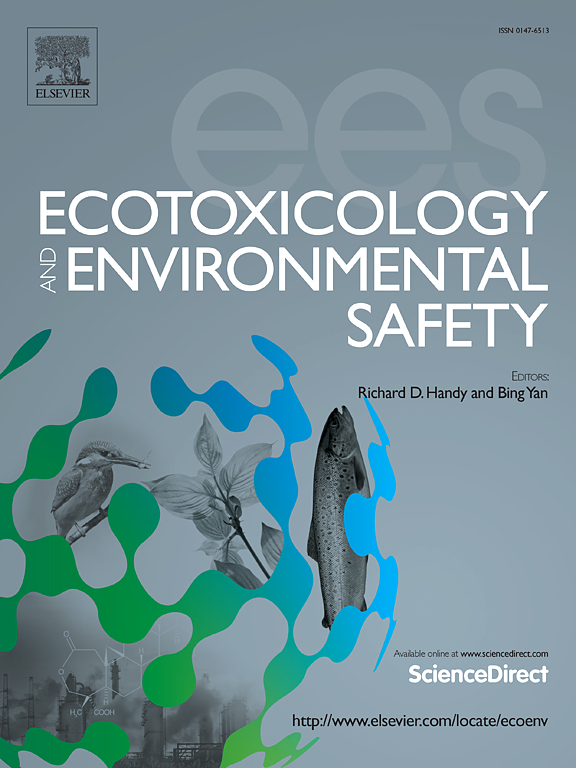Polyethylene terephthalate microplastics affect gut microbiota distribution and intestinal damage in mice
IF 6.2
2区 环境科学与生态学
Q1 ENVIRONMENTAL SCIENCES
引用次数: 0
Abstract
Polyethylene terephthalate microplastics (PET-MPs) have been detected in the environment and human metabolites or tissues; however, their potential effects on humans under actual exposure doses remain unclear. Herein, male adult mice were exposed to 10 µm PET-MPs at concentrations of 10, 50, and 250 mg/kg per body weight consecutively for 28 days. Changes in blood biochemistry, inflammatory factors, colonic histopathology, colonic mucus gene mRNA levels, and the gut microflora were monitored to study PET-MPs toxicity. The results showed that PET-MPs exposure increased relative serum alanine aminotransferase (ALT) and glucose (GLU) levels in 50 mg/kg bw PET-MPs exposure group, and altered relative levels of inflammatory factors, thereby inducing the inflammatory response. Moreover, PET-MPs exposure increased mRNA expression levels of colonic mucus secretion related and barrier function related genes, indicating intestinal mucus secretion and barrier integrity dysfunction, which was consistent with the results of histopathological results. In addition, gut microbiota analysis revealed that the diversity and community composition were altered after PET-MPs exposure, suggesting a metabolic disorder. Therefore, our results demonstrated that exposure to PET-MPs led to intestinal injury and changes in the gut microbiome composition in mice. Overall, the study findings provided basic data about the health risks of PET-MPs to humans, highlighting that MPs-induced toxicity warrants more concern in the future.
求助全文
约1分钟内获得全文
求助全文
来源期刊
CiteScore
12.10
自引率
5.90%
发文量
1234
审稿时长
88 days
期刊介绍:
Ecotoxicology and Environmental Safety is a multi-disciplinary journal that focuses on understanding the exposure and effects of environmental contamination on organisms including human health. The scope of the journal covers three main themes. The topics within these themes, indicated below, include (but are not limited to) the following: Ecotoxicology、Environmental Chemistry、Environmental Safety etc.

 求助内容:
求助内容: 应助结果提醒方式:
应助结果提醒方式:


